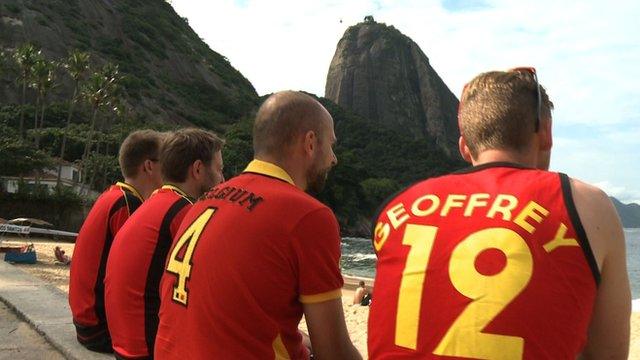World Cup 2014: Fans watch valiant US World Cup exit
- Published
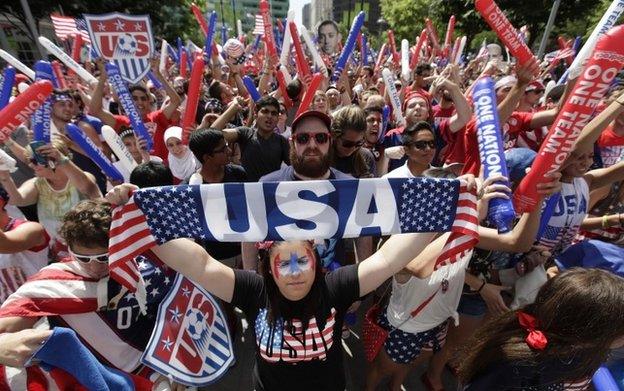
Amber Silvani, of Southgate, Michigan, leads USA fans at a Belgium viewing party in Detroit
Millions of Americans stopped work early to watch their national football team get edged out of the World Cup by Belgium in a thrilling match in Brazil.
After a string of fine saves from US goalie Tim Howard, Belgium went 2-0 ahead in extra-time. The US then pulled one back to set up a pulsating finale.
Thousands packed public viewing areas across the country, despite a 16:00 eastern time (20:00 GMT) kick-off.
Afterwards, the 2-1 defeat was hailed by many as the best game so far.
Leaving Soldier's Field in Chicago, where nearly 30,000 people watched the drama unfold on big screens, fans said they were "heartbroken" but proud of how the team had played.
It was a magnificent defensive effort, as Belgium launched wave after wave of attacks in the second half but each one foundered as American bodies - most often Howard's - were flung in the way.
Even England fans were impressed, many commenting on social media how much they admired the American spirit, which was ultimately extinguished after a late, desperate attempt to equalise in the closing minutes failed.
As many as 14 million workers were predicted to down tools to watch Tuesday's game, costing the US economy more than $600m (£350m) in lost labour productivity, according to an estimate by Yahoo Finance, external.
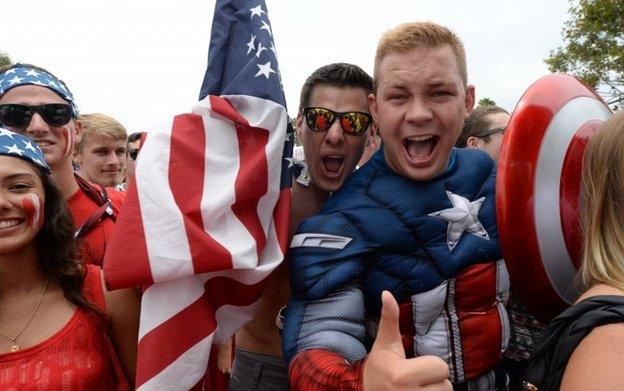
Fans who gathered at Redondo Beach, California, hoped for superheroics - but were left disappointed

At the scene - Aleem Maqbool, BBC News, Chicago
It was only minutes before they were eventually knocked out of the World Cup that the final rousing chant of "I believe" rose up from Soldier Field.
About 28,000 people had been given hope by a US goal and noisily willed their team to repay the nation's seemingly undying faith and equalise.
After the match, Belgian and US supporters spoke about their joy - and heartbreak
They had watched much of the match through their hands wondering how many times they could be saved by their new hero, the man they were all talking about, goalkeeper Tim Howard.
But many realised they had squandered too many chances to complain about the result.
As the thousands streamed out of the stadium in their red, white and blue, there was clearly a lot of disappointment but certainly quite a bit of pride too, and there were many who said whatever happened today, this World Cup had helped them realise a new love for football.

Even President Barack Obama told reporters he had arranged his schedule around the match.
"I thought I'd get the cabinet together this morning, because we all know that America will be busy this afternoon. Go team USA," he said.
Large viewing parties were held across the US, including in Chicago, Kansas City and Washington DC.
At Freedom Plaza in Washington, the city government was hosting a viewing party, where viewers grabbed a spot on the stone plaza in the blistering heat hours before the match.
"I'm so thrilled, I've been watching the World Cup my entire life," Hiwot Hailu told the BBC. "I'm glad I get to drag my friends along to watch the game."
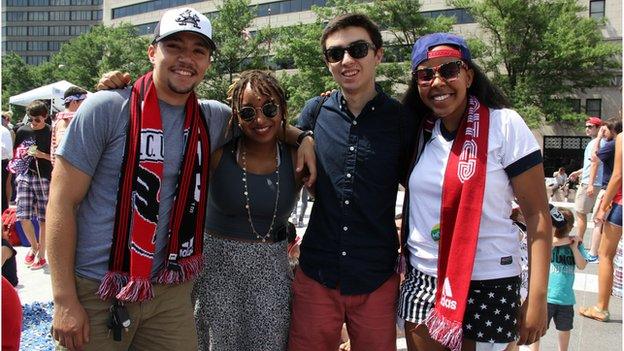
Hiwot Hailu (far right) said she hoped this World Cup would be a turning point for US football
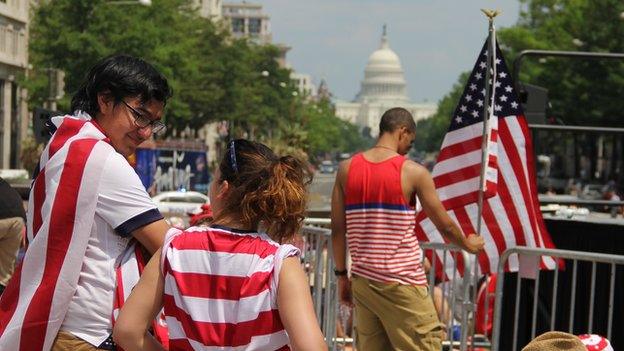
Fans grabbed the few grassy spots in the plaza in Washington DC early
Another fan said the fervour was different than regular football matches in the US.
"The team is playing well," Kevin Peska said. "And Americans get behind their country."
Team USA's success in progressing through the so-called Group of Death had driven a wave of enthusiasm for football, which typically lags far behind American football, baseball, basketball and ice hockey in popularity.
Even in Texas, traditionally American football country, football has taken a hold.
With his right cheek sporting the stars and stripes, Jon Watson joined thousands of others at an outdoor viewing party in 90-plus temperatures.
"And I'm not even a soccer fan. I'm a tennis guy. I should be watching Wimbledon,'' he said.
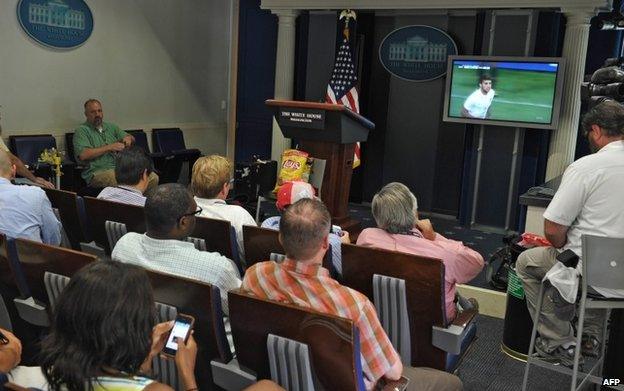
The White House press room was only interested in one story
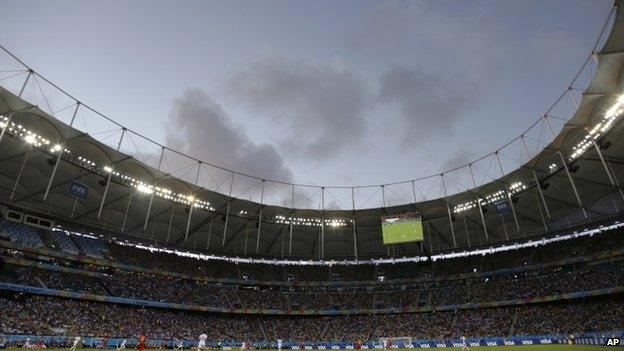
The two teams are playing at Arena Fonte Nova in the noisy and vibrant city of Salvador
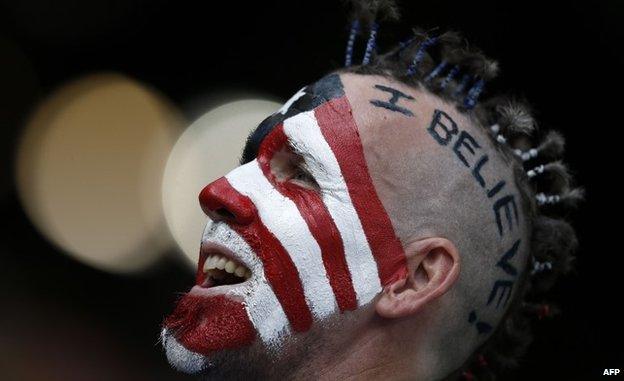
The mantra 'I believe that we will win' has been heard across the US and in Brazil
But not everyone will be tuning in. Despite the increased viewing figures, an NBC News poll suggests six in 10 Americans have very little interest or no interest at all in the World Cup. Only 22% had a "great deal" or "quite a bit" of interest.
The US and Belgium had not played each other in the World Cup since the first tournament in 1930, where the Americans won 3-0.

Football fever in the US

- Attribution
- Published2 July 2014
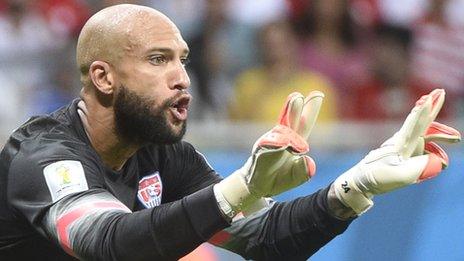
- Published2 July 2014
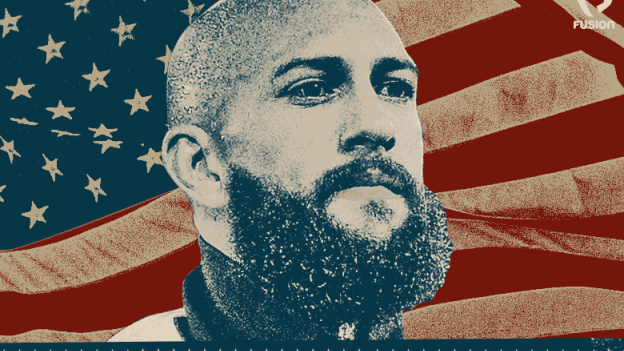
- Attribution
- Published2 July 2014
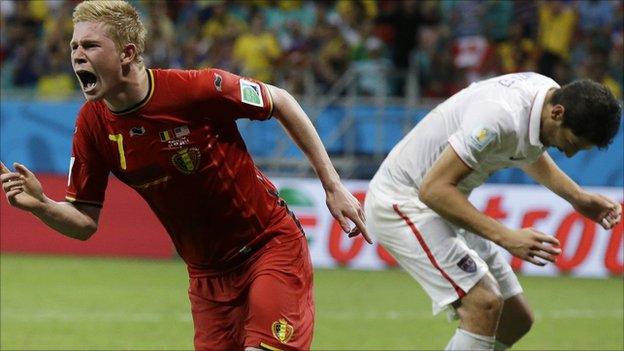
- Published1 July 2014
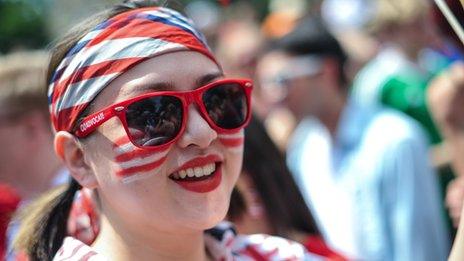
- Published2 July 2014
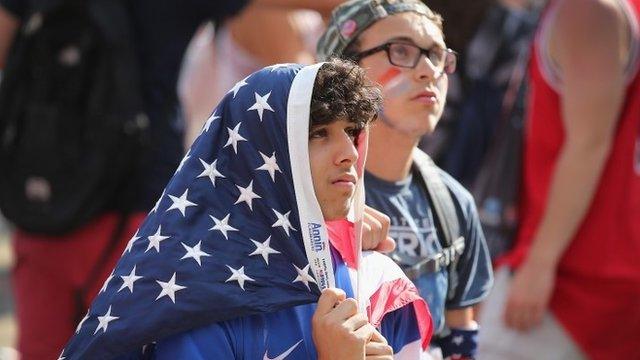
- Published1 July 2014
- Attribution
- Published30 June 2014
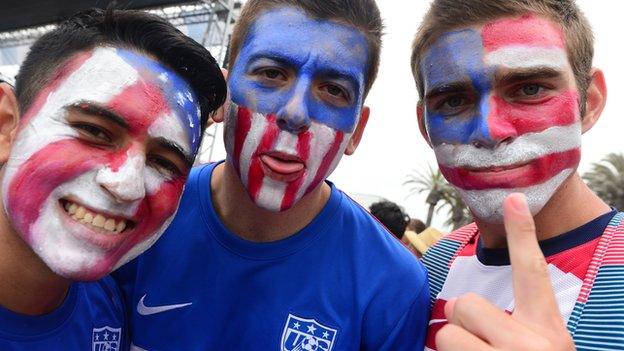
- Published1 July 2014
